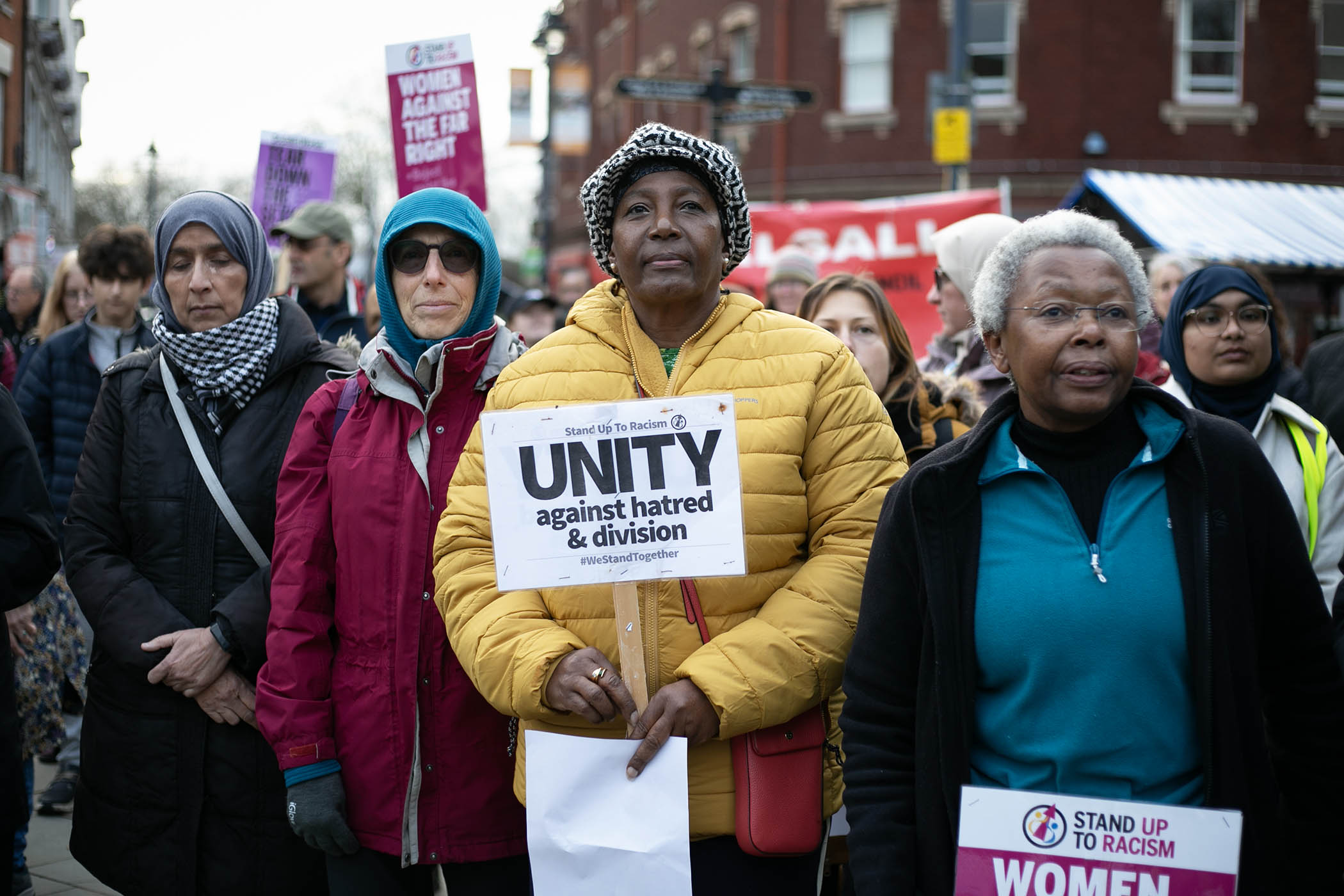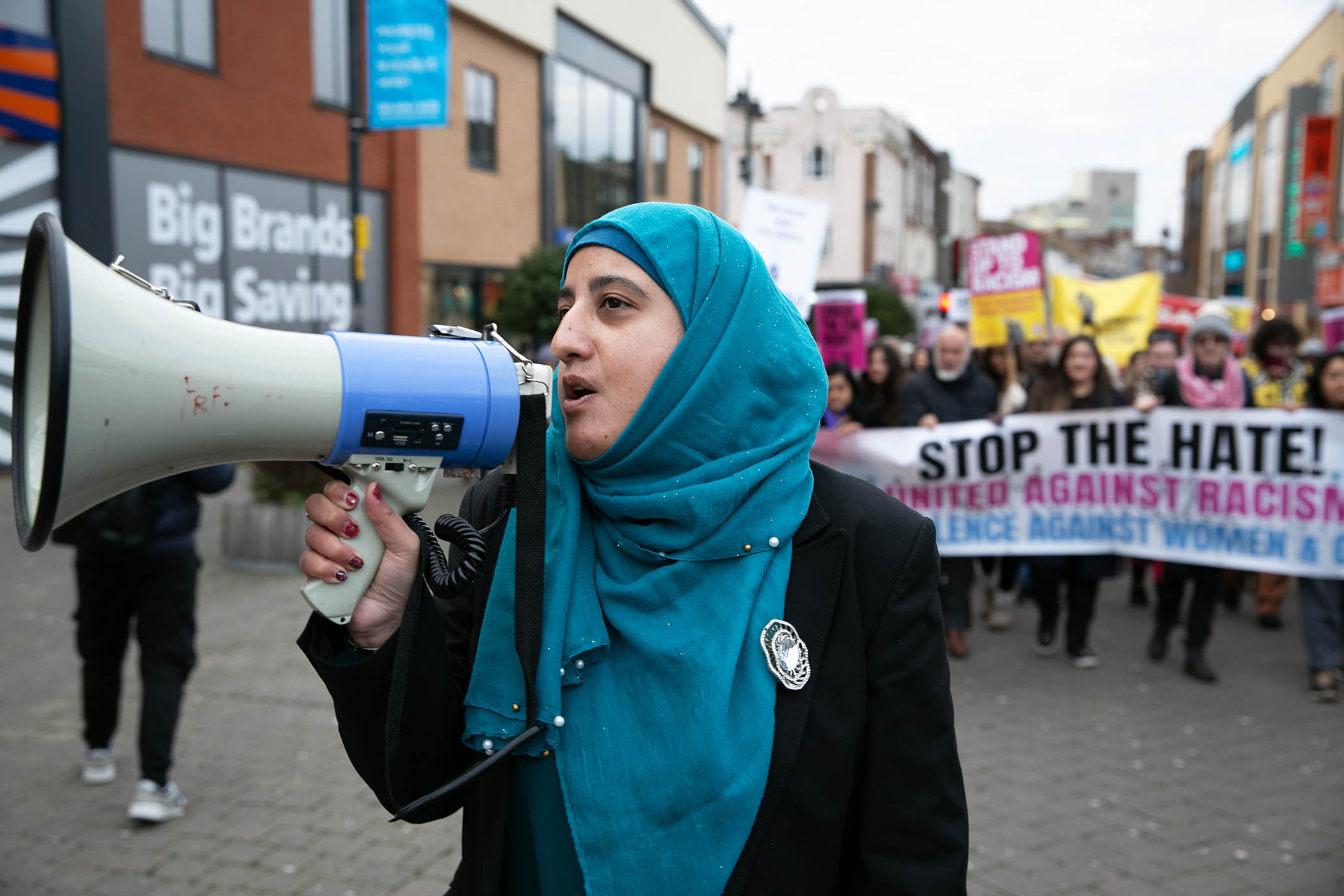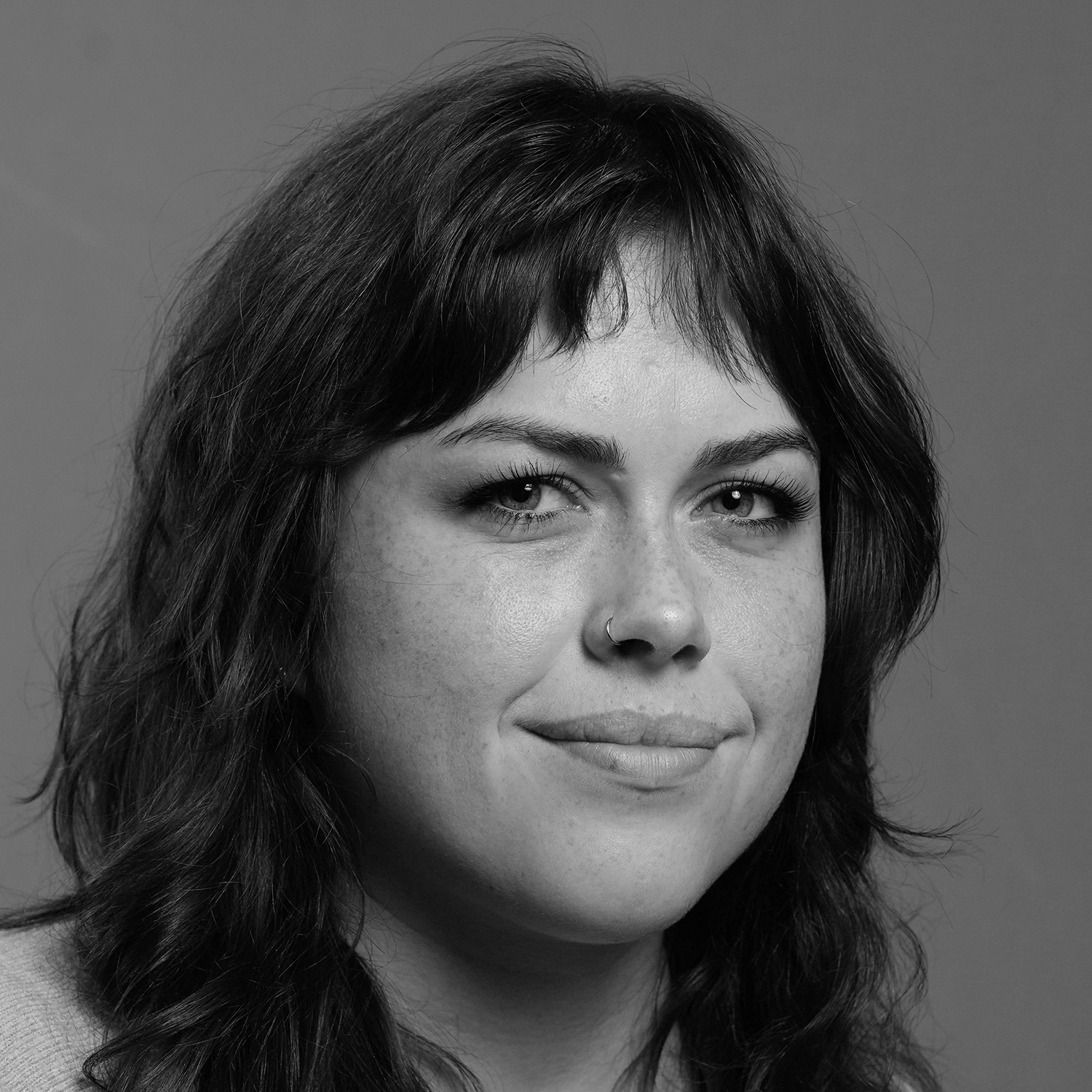Two women hugged Shaheen Akhtar as she held back tears while reading out the first line of a poem she’d written about the racism she’s experienced on the streets of Walsall in Staffordshire: “They looked at my scarf and not the soul beneath it.”
Shaheen was one of more than 150 women, men and children who took to the streets of Walsall yesterday for a “Unity Walk” following claims of a spate of racially aggravated rapes, assaults and abuse of women in the West Midlands. Early on 9 September, a Sikh woman in her 20s reported to police that two white men had attacked her in scrubland near Oldbury, just west of Birmingham.
According to the Sikh Federation, which has spoken with the victim, the perpetrators allegedly told her during the attack: “You don’t belong in this country, get out.”In a public statement, the woman said: “I would never wish this on anyone. All I was doing was going about my day on my way to work.”
Two men and a woman have since been arrested on suspicion of rape in relation to the assault in Oldbury and released on bail. In the initial days of the investigation, Sandwell Police said they understood “the anger and worry” the alleged rape had caused, but said incidents such as this are “incredibly rare”.
Then, in late October, another Sikh woman alleged she was raped in the leafy Park Hall area of Walsall. A 32-year-old man named John Ashby was charged with racially aggravated rape and intentional strangulation. He has yet to indicate a plea to the charges.
The day before Ashby was charged, a woman in her 50s reported being attacked by a group of men in Wolverhampton with a handheld electrical stun device and a metal bar. Police have not released the woman’s ethnicity, but have called the attack racially aggravated.
There is no evidence these incidents are linked. But for women in the West Midlands, in particular Sikh women, the attacks have left them fearing for their safety.
Sunday’s march to “Stop the Hate” was organised by Surwat Sohail, 42, CEO of Roshni Birmingham, a charity supporting Black and minority women affected by domestic abuse, including honour-based abuse.
These perpetrators have picked up that our local communities give high standing to honour… they are picking on women to get to the community
These perpetrators have picked up that our local communities give high standing to honour… they are picking on women to get to the community
Surwat Sohail, CEO of Roshni Birmingham
Sohail, whose nieces live near where the Walsall victim was alleged to have been raped, says the recent incidents feel like “another form of honour-based abuse”. “These perpetrators have picked up that our local communities give high standing to honour. So what they are doing now is that, these weak perpetrators are picking on women to get to the community,” she explains.
Young Sikh and Muslim women who joined the march told The Observer they feel especially vulnerable following the recent attacks.
Newsletters
Choose the newsletters you want to receive
View more
For information about how The Observer protects your data, read our Privacy Policy
Nadia (not her real name), 23, grew up in Walsall and works in a local women’s community hub. She said she was already feeling scared after reports of the rape in Oldbury: “Then when the last incident happened in Walsall, I was like, ‘Wow, could it be me?’. It’s a constant fear you have inside you that anything can happen. It shouldn’t be like that,” she said.
Aliah (not her real name), who has lived in Walsall for 30 years, handed out rape alarms to women on the march “to help them feel safe”. For the first time in her life, Aliah said she felt she had to carry one too.
“We’re actually moving backwards. My granddaughter was born six weeks ago, and I fear for her. What sort of country will she grow up in?” she said.
Many of the campaigners and organisers giving speeches at the march said they felt the recent rise of the far right had led to people feeling “more confident” in racially abusing women – and men – on the streets.
In August, two Sikh taxi drivers said they feared they would be killed during an unprovoked attack near Wolverhampton train station, which police are also treating as a racially-aggravated assault.
Dr Shirin Housee, 64, who runs Birmingham Black Sisters, said the Union and St George’s flags put up across the country over the summer, made her feel “less safe”.
“My kids are young men now and they used to laugh at me and their dad saying, ‘Oh come on, that’s the racism of the old days’. Now they’re saying, ‘I get it now.’”
“I feel like it’s getting worse, and I am someone who has been actively campaigning [against racism] for 40 years,” Housee said.

A community gathering to unite together against racism, misogyny, discrimination and violence
So what next for the women of Walsall? The most repeated refrain from those at the march was this: “Enough is enough”.
Following the alleged rape in Walsall, more than 70 women’s organisations called for a meeting with Birmingham Yardley MP and safeguarding minister, Jess Phillips, and the West Midlands police and crime commissioner, chief constable Craig Guildford.
But that meeting is yet to happen.
West Midlands Police has increased its on-street presence in towns and cities, but last Saturday a statement released on behalf of the Oldbury victim criticised the force for their response to the attack.
“I feel strongly that the police have not done as much as they should have to protect me or support me. While I was unable to sleep, and while my family and I were forced to leave our home and move away from the area, the perpetrator has continued to walk freely around on police bail. That reality has been terrifying and deeply unfair,” she said.
In a statement, West Midlands Police told The Observer that the victim “has and continues to be at the heart of our enquiries.
“Our officers continue to work extremely hard to gather sufficient evidence to prosecute those responsible but we continue to request anyone with information to contact us. We are committed to bringing those responsible to justice and have had dedicated officers working flat out on this investigation since the incident took place,” they said.
Jess Phillips, Minister for Safeguarding and Violence Against Women and Girls (VAWG), said the recent attacks were “completely unacceptable” and were being taken “extremely seriously”.
“Every woman and girl deserves to be safe in her community.”, she said.
Phillips also said she had offered to meet community leaders to discuss concerns about women's safety and pointed to the upcoming VAWG strategy, which is due to be published this year.
“We are determined to protect women and bring perpetrators to justice,” she said. “That’s why we have set up a new £13.1 million centre to strengthen the police response to these crimes.”
“One thing I will not stand for is this racism and hate stopping me from doing what I am doing and stop me coming here and speaking today,” said Rupinderjit Kaur, 42, who works for Roshni and is a former Labour councillor.
“If you know much about Sikhism, we don’t just hide behind doors. We come out and we fight. We fight until our last breath.”
Photograph by Richard Saker for The Observer



